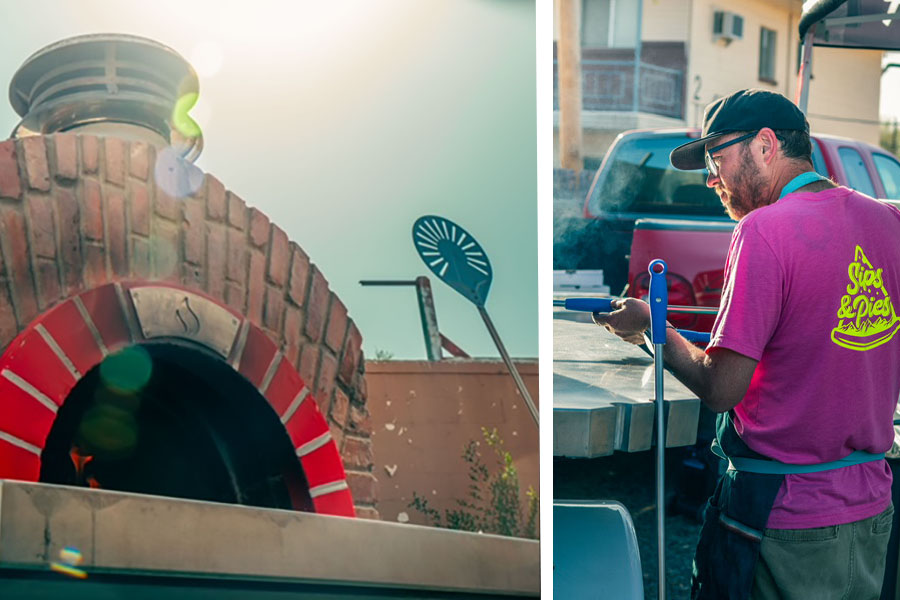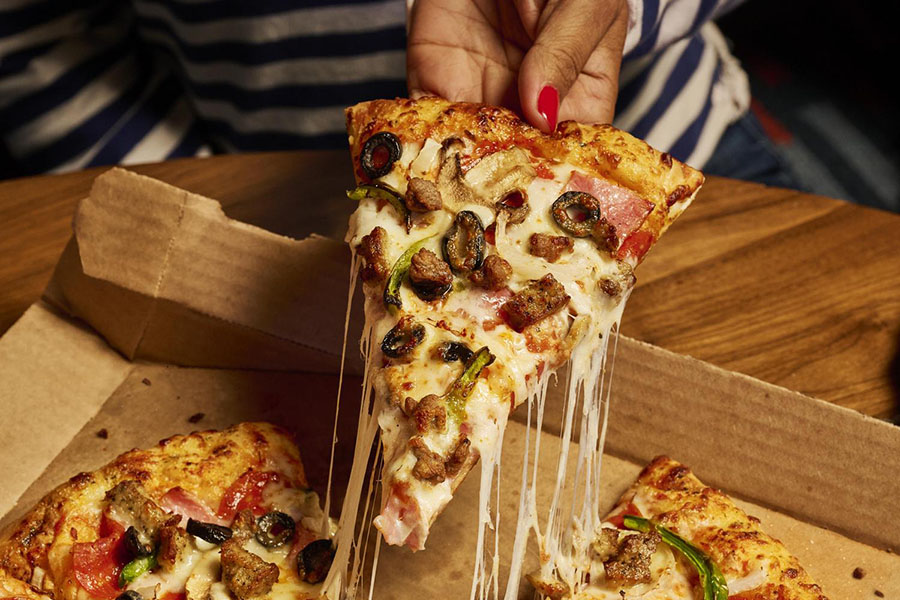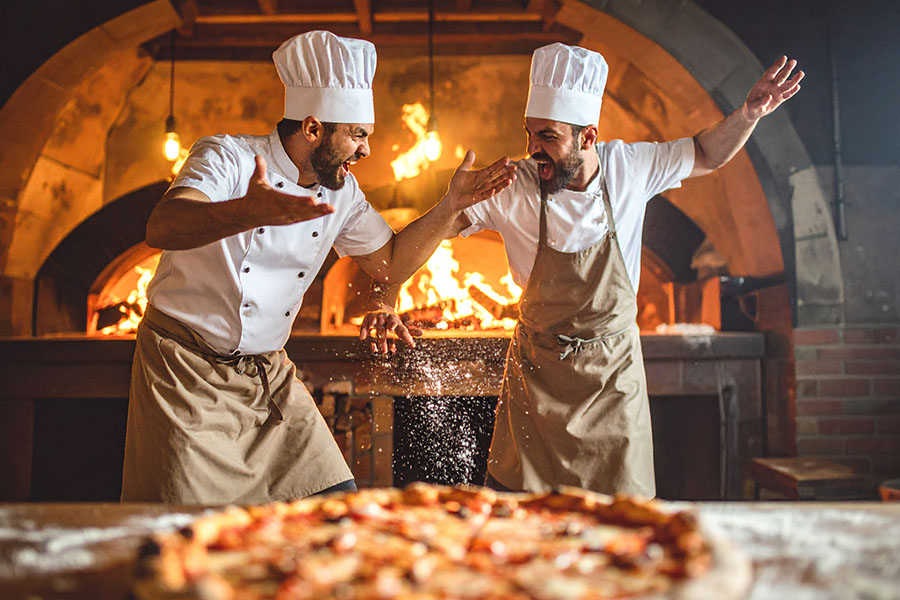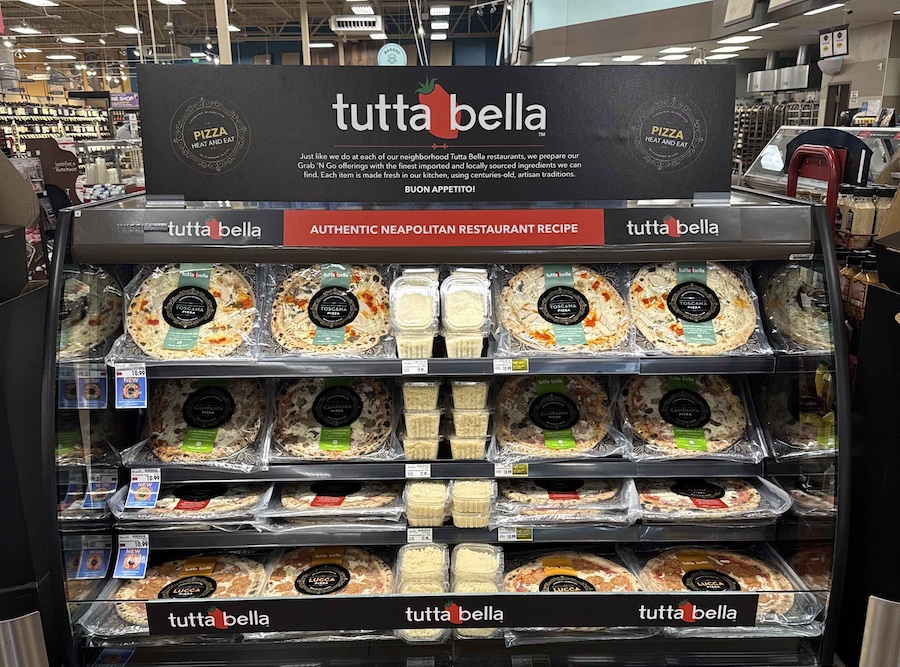 Communication, defined roles critical to a successful partnership in the pizzeria world
Communication, defined roles critical to a successful partnership in the pizzeria world
Bob Wilson and Kevin Hershock’s relationship spans some 30 years.
Each calls the other a dear friend. The two talk regularly, sharing laughs, life’s turns, and Detroit Lions season tickets.
For the last 10 years, the two have also shared something else: five Hungry Howie’s stores in Western Michigan, a relationship both term “perfect.”
Though woes and battles devastate many restaurant partnerships, Wilson and Hershock have avoided any negative turns with a united focus on the success of their five pizzerias, defined roles, constant communication and genuine respect.
“And there’s no reason for things to change,” Wilson says.
While many pizzerias remain sole proprietorships, many others adopt the multi-headed partnership model. An attractive financial set up, as multiple individuals share the investment and risk, partnerships can also produce a better quality of life as responsibilities are shared.
For all of its advantages, however, the partnership landscape remains littered with horror stories of broken trust, selfish acts and shuttered stores. “That’s no pleasant place to be,” Hershock says, adding that a single-minded mission from all sides regarding the work, the pizzeria’s culture, and a long-term vision sits at the root of any successful restaurant partnership.
To avoid the trappings of a fallout and optimize the partnership, many agree that transparent and consistent communication must take precedence.
Wilson and Hershock, for instance, talk three to four times each week about the business and neither hesitates to address something the other may have overlooked. Wilson may see certain numbers on an invoice and urge Hershock to investigate further; Hershock may wish to upgrade kitchen equipment and detail why it’s a wise investment.
“The constant communication creates a system of checks and balances to ensure the business is moving as it should,” Hershock says.
Adds Wilson: “We’re very open with what we need from one another and, in that way, nobody gets frustrated by what’s going on.”
At the one-year-old East-West Pizzeria in Las Vegas, Phyllis Barkin and her business partner, William Cartwright, have daily discussions about the business and decisions are never solo endeavors. Though there has been a learning curve for both, the daily interactions eliminate ambiguity and finger pointing.
“From hiring to marketing and payroll, everything’s clear. We each know what the other is working on at all times,” says Barkin, who likens a restaurant partnership to marriage and raising a child in that both parties have committed to one another and to nurturing the business. “There simply can’t be secrets.”
Defined roles add another key ingredient to the partnership mix. Fred Shandler and Dan Richer have been partners at Arturo’s Osteria in Maplewood, New Jersey for five years. Shandler says the key to their successful relationship has been the clear-cut, complementary roles each plays.
Shandler oversees hiring, training, and all front-of-the-house systems, while Richer delivers the back-of-the-house expertise. Combined with a sincere trust that each is offering his best effort, Shandler says the defined roles have catapulted the operation to quick success.
“We’re able to split our areas and maximize all of the moving parts a restaurant operation needs to address,” Shandler says.
Wilson and Hershock adhere to the same role-defining formula.
Though Wilson calls himself “hands on” with the three Hungry Howie’s outlets he operates with his wife, he rarely travels into the five stores he shares with Hershock.
“That’s not my role with Kevin. He’s the day-to-day operational leader there,” says Wilson, who refers to himself as “the financial guy” in the partnership. “We know our roles and understand what the other brings to the table.”
At East-West, it’s Cartwright who handles the finances and Barkin who directs the kitchen. To further boost the partnership’s success, each respects the other’s skills. Barkin honors Cartwright’s financial interest by not squandering his money, while he respects the foodservice experience and knowledge she brings into the kitchen.
“We know each other’s responsibilities and move forward,” Barkin says.
In the event that partners’ skill sets are not complementary, honest communication and role definition takes on added importance.

“I believe two chefs can be partners, but they can’t be battling over recipes. The two need to set clear roles and expectations for one another,” Shandler says, alluding to the oft-cited two-cooks-in-the-kitchen analogy.
Though Wilson and Hershock had both been in unsatisfying, failed partnerships before, neither hesitated in uniting with the other to open the Hungry Howie’s outlets. Given the friendship and respect the two share, creating a joint partnership was an easy call and remains a central component of their success.
“Neither of us want to let the other down, so we work hard to make positive things happen,” Hershock says.
In the year before creating their partnership, Shandler and Richer began sharing an apartment. Shandler says the experience proved invaluable. As each man gained a deeper understanding of the other’s character, a natural friendship and respect blossomed.
“It tested our partnership, but also built it,” he says.
Though Shandler knows few will mimic their co-habitation experience, he says the principle is the same for any successful venture.
“It’s about getting to know your partner on a deep personal level and developing a foundation of trust,” Shandler says. “That’s crucial to any successful partnership.”
A Wise Move: Crafting a partnership agreement
From operational to financial, partners come in all shapes and sizes, the mindset and goals differing from one to the next.
To avoid partnership pitfalls, a well-crafted partnership agreement addressing such key issues as who’s investing what and when, profits, incentives, partnership buyouts, death, disability, and expansion issues is an absolute must.
“If the agreement’s done right and the roles and what ifs are defined, you should never have to look at it again,” says New York-based attorney Carolyn Richmond, who co-chairs the hospitality practice group at Fox Rothschild LLP.
Richmond encourages all potential partners to seek an attorney and accountant with hospitality industry experience, as both should understand the unique issues restaurateurs face.
“Take pains to make sure the right professionals are in place. You don’t want someone trying out their skills on you the first time,” Richmond says, noting that chambers [of commerce], restaurant associations, and small business development centers can be helpful resources.
Chicago-based writer Daniel P. Smith has covered business issues and best practices for a variety of trade publications, newspapers, and magazines.
 Communication, defined roles critical to a successful partnership in the pizzeria world
Communication, defined roles critical to a successful partnership in the pizzeria world





